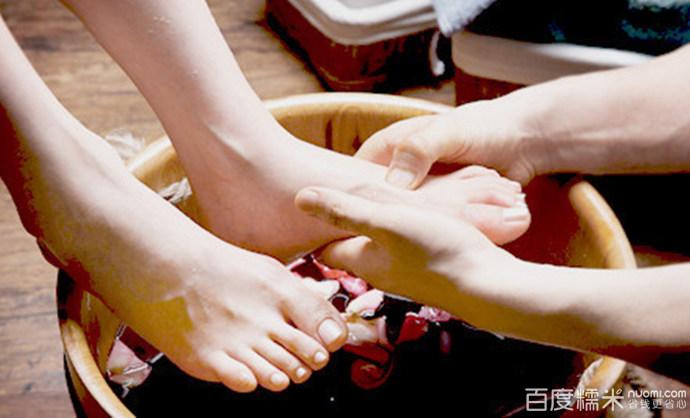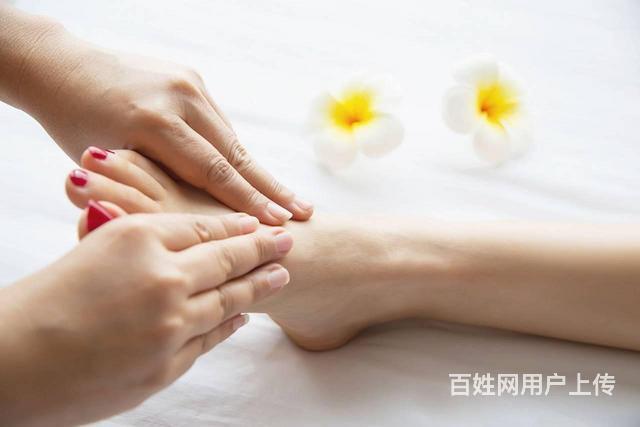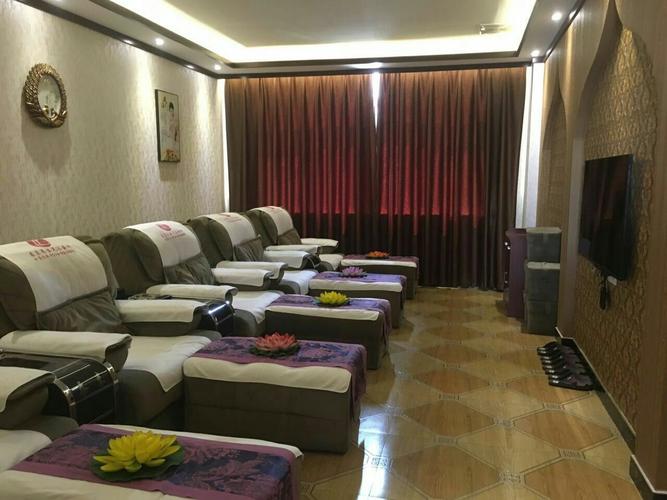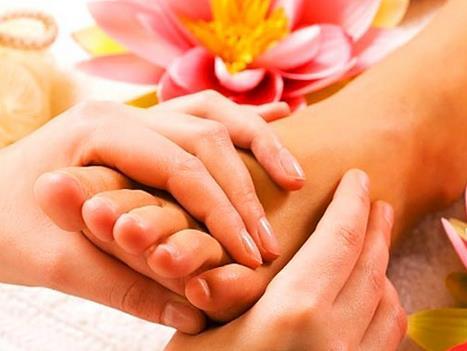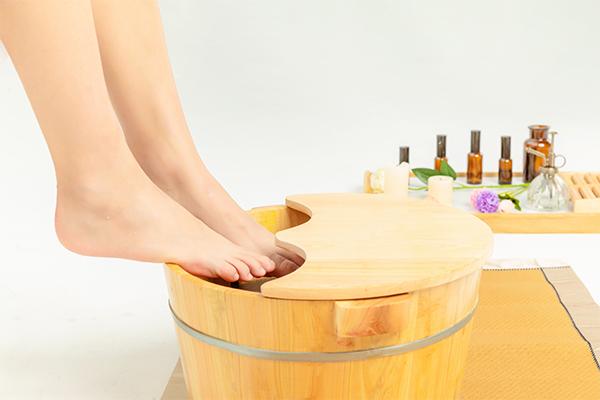Foot Therapy
andPsychological Health
are increasingly recognized as closely intertwined aspects of overall well-being. This article delves into the profound relationship betweenfoot reflexology
andmental wellness
, examining how this ancient practice can positively influence emotional and psychological states.### Understanding Foot Therapy
Foot therapy, often referred to as foot reflexology, is a holistic approach that involves applying pressure to specific points on the feet. These points, known as reflex points, correspond to various organs and systems within the body. The practice is rooted in the belief that stimulating these reflex points can enhance bodily functions, alleviate pain, and improve overall health.
The concept of reflexology dates back to ancient civilizations, including Egypt and China. Traditional Chinese Medicine (TCM) describes a network of energy channels or meridians that run through the body. According to this belief, blockages or imbalances in these energy channels can lead to physical and emotional issues. Reflexology aims to restore balance and promote healing by targeting these energy pathways through the feet.
### The Link Between Foot Therapy and Psychological Health
The connection between foot therapy and psychological health is a burgeoning area of interest in the field of wellness. Numerous studies and anecdotal evidence suggest that foot reflexology can have significant benefits for mental well-being. Here are several ways in which foot therapy can positively impact psychological health:
#### 1. **Stress Reduction**
One of the most notable benefits of foot therapy is its ability to reduce stress. During a reflexology session, the body enters a state of relaxation that triggers the parasympathetic nervous system, often referred to as the "rest and digest" system. This relaxation response can help lower cortisol levels, the hormone associated with stress.
Research has shown that reflexology can help lower blood pressure and heart rate, both of which are indicators of reduced stress. Additionally, the soothing touch of foot therapy can promote the release of endorphins, the body's natural mood enhancers. As a result, individuals may experience a sense of calm and tranquility following a session.
#### 2. **Improved Sleep Quality**
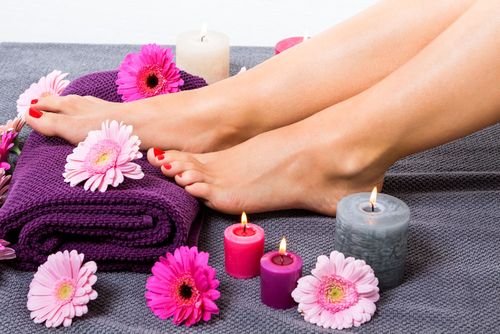
Many people struggling with anxiety or stress also experience sleep disturbances. Reflexology may offer relief by promoting relaxation and improving sleep quality. The calming effects of foot therapy can help individuals unwind before bedtime, making it easier to fall asleep and stay asleep throughout the night.
Studies have demonstrated that reflexology can improve sleep patterns, particularly in individuals with insomnia or sleep-related issues. By addressing both physical and emotional tension, foot therapy can create a more conducive environment for restful sleep.
#### 3. **Enhanced Mood**
Foot therapy has been linked to improvements in mood and emotional well-being. The practice of reflexology involves gentle, rhythmic pressure applied to the feet, which can stimulate the release of neurotransmitters such as serotonin and dopamine. These chemicals play a crucial role in regulating mood and emotional states.
By promoting a positive mood and reducing feelings of anxiety and depression, reflexology can contribute to overall psychological health. Many individuals report feeling uplifted and more emotionally balanced after a reflexology session, making it a valuable tool for managing mood fluctuations.
#### 4. **Increased Mental Clarity**
The relaxation induced by foot therapy can also lead to improved mental clarity and cognitive function. Stress and anxiety can cloud the mind and impair concentration, while a relaxed state can enhance focus and mental sharpness.
Foot reflexology can help clear mental fog and promote a sense of mental clarity. By addressing physical and emotional stressors, individuals may find themselves better equipped to handle daily challenges and make thoughtful decisions.

#### 5. **Emotional Release**
Reflexology can also facilitate emotional release, helping individuals process and release pent-up emotions. The act of receiving foot therapy can create a safe space for emotional expression, allowing individuals to confront and address unresolved feelings.
This emotional release can be particularly beneficial for those dealing with grief, trauma, or chronic stress. Reflexology can provide a supportive environment for emotional healing and self-discovery.
### Incorporating Foot Therapy into Your Wellness Routine
Integrating foot therapy into a regular wellness routine can offer numerous benefits for both physical and psychological health. Here are some tips for incorporating reflexology into your self-care regimen:
1. **Seek Professional Guidance**: Consider consulting a certified reflexologist who can provide personalized treatment based on your specific needs and health goals.
2. **Practice Regularly**: Consistency is key to experiencing the full benefits of foot therapy. Aim for regular sessions to maintain balance and support your overall well-being.
3. **Combine with Other Practices**: Foot therapy can be complemented with other relaxation techniques such as meditation, yoga, or deep breathing exercises for a more holistic approach to wellness.
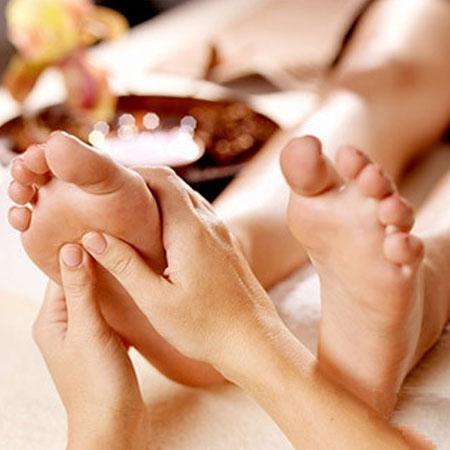
4. **Pay Attention to Your Body**: Listen to your body's signals and communicate any discomfort or concerns with your reflexologist. Each individual's experience with foot therapy may vary, so it's important to tailor the practice to your unique needs.
5. **Create a Relaxing Environment**: If you choose to practice foot reflexology at home, create a calming atmosphere by using soothing music, dim lighting, and comfortable seating. This can enhance the relaxation experience.
### Conclusion
Foot therapy, or reflexology, offers a range of benefits for psychological health by reducing stress, improving sleep quality, enhancing mood, increasing mental clarity, and facilitating emotional release. As a complementary practice to traditional medical treatments, reflexology can play a valuable role in supporting overall well-being.
By incorporating foot therapy into your self-care routine, you can take proactive steps toward achieving greater mental and emotional balance. Whether seeking relief from stress or simply aiming to enhance your quality of life, reflexology provides a holistic approach to nurturing both body and mind.
转载请注明:成都会所桑拿-四川成都休闲桑拿推荐论坛! » 足疗保健 » **The Therapeutic Connection Between Foot Therapy and Psychological Well-being: Exploring How Foot Reflexology Can Enhance Mental Health**
版权声明
本文仅代表作者观点,不代表成都休闲网立场。
本文系作者授权发表,未经许可,不得转载。





